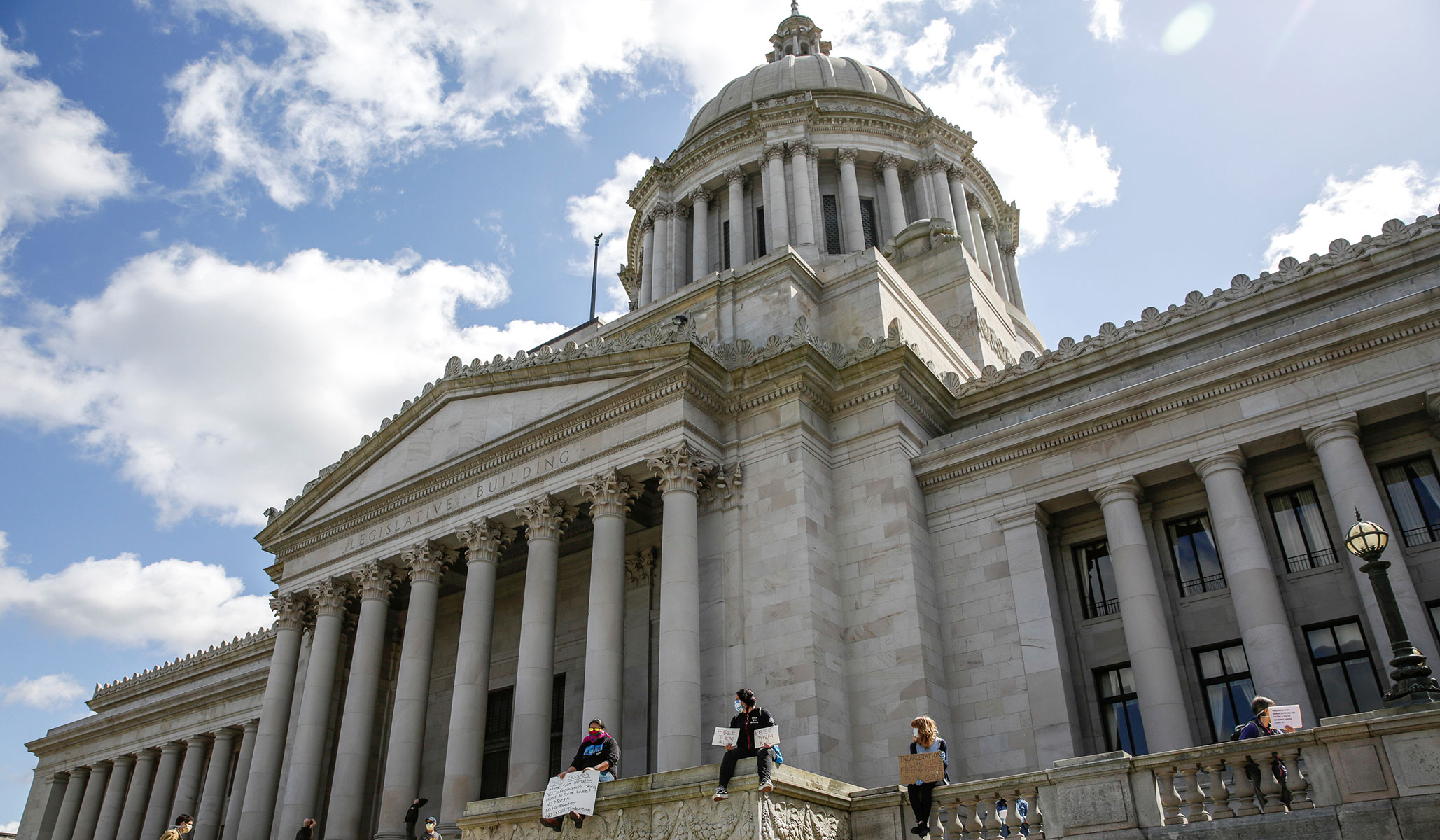


NRPLUS MEMBER ARTICLE S ome religious traditions practice what is called apophatic theology: the idea that, because of the limits of human reason, God cannot be described or understood and is only definable by determining what God is not. In Washington State, where efforts to tax income despite constitutional constraints have attained an almost religious fervor, the state supreme court has adopted a similar approach. The justices don’t know exactly how to define an income tax, but they’re pretty sure it can’t be defined as a tax on income.
Washington’s state constitution puts strict limits on property taxes. It also defines property extremely broadly, to include “everything, whether tangible or intangible, subject to ownership.” A century of case law has held that this definition encompasses income, and thus functionally prohibits the state from adopting an income tax.
State lawmakers tested the limits of this prohibition in 2021 by adopting a tax on high-earners’ capital-gains income. Then, they proceeded to defend it under the specious claim that it isn’t really an income tax at all, but rather an excise tax on the privilege of earning income, conveniently measured by net income. It was a clever ploy: If the courts bought their misdirection, they’d get a capital-gains tax. If they didn’t, then perhaps a notoriously unrestrained state supreme court would tear up the constitutional limitation on income taxes altogether.
As of March 24, the Washington supreme court has taken the former path, deciding that a tax on income is not an income tax if the legislature calls it an excise tax.
This flies in the face of all logic and legal precedent, but the court’s reasoning goes like this: Washington is allowed to tax the exercise of privileges and can certainly tax transactions (true). Capital-gains income is realized in a transaction (also true). Therefore, if the state taxes the resulting income, it can characterize it as a tax on the transaction to get around the restriction on taxing income (self-evidently false).
The court’s faulty claims are based in part on a confused reference to a 1916 U.S. Supreme Court case, but you don’t have to be a lawyer to know why this latest decision is wrong. If the state’s capital-gains-income tax were a tax on a transaction or on the exercise of a privilege, it would apply to every sale of a capital asset. Instead, it is based on the aggregate net capital-gains income from all transactions (pulled directly from taxpayers’ federal income-tax returns), with an exclusion to ensure that the tax only applies to high-earners.
No matter what you call it, this is a tax on a class of income, not merely a tax on the exercise of a privilege. Indeed, it is no more an excise tax than a wage-income tax is a sales tax on the sale of labor to an employer.
For the time being, the court has elected to make the entirely unconvincing assertion that capital-gains taxes are distinguishable from wage-income taxes, which are still nontaxable. But this claim is as untenable as the court’s legal reasoning is unclear. The invitation the decision is extending, however, might as well be written in flashing neon lights.
The implications are clear indeed: The Washington supreme court is asking, almost begging, lawmakers to send them a facial challenge to a century of well-reasoned case law restricting income taxation by the state. Don’t read the state constitution, they seem to be saying, just read our policy preferences, spelled out in twelve pages of complaints about the current tax code.
In other words, the justices are ready and willing to declare an income tax constitutional, so much so that they have signposted the arguments they’ll accept, facile as they may be.
This should worry all Washingtonians, regardless of their income bracket. After all, despite some unconvincing protestations to the contrary, the justices’ clever bit of wordplay (making income tax a class of excise tax) sets no limiting principles on what sort of income — or other things subject to ownership — can be taxed without regard to constitutional constraints. This means that the logic of the court’s decision applies to taxes on wage income in the same way it applies to capital gains.
When all is said and done, it doesn’t take a great legal mind to understand that a capital-gains-income tax is unconstitutional in Washington, but it takes an ingenious one to argue a way out of it. The state supreme court should be commended for its ingenuity, but not for its fidelity to the state constitution, judicial precedent, or even good old-fashioned common sense.
